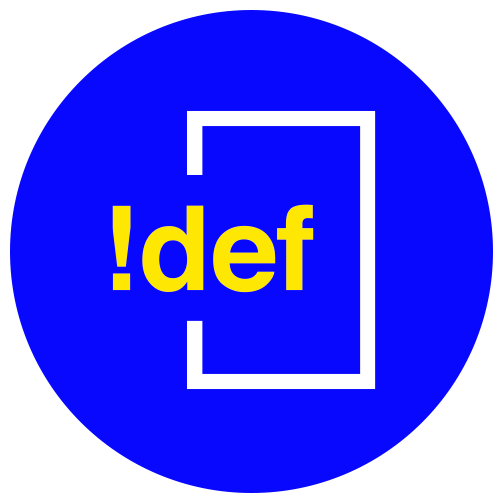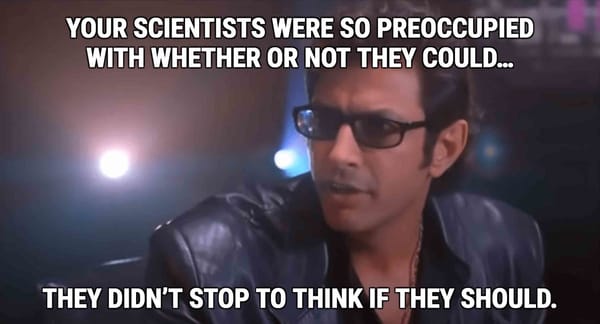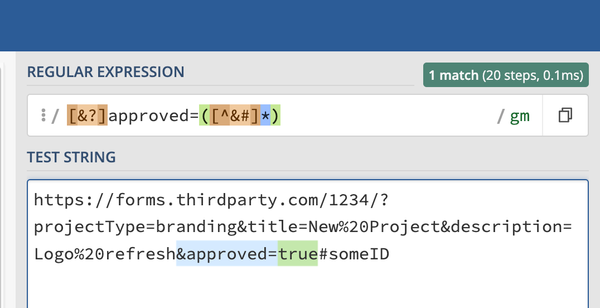See, Speak, and Hear No Evil

Halloween always had an allure for me. It was cathartic in some ways, almost as if I could deal with my demons by watching the scary movies, indulging in massive sugar highs, and taking off my personal “mask” by donning actual masks.
In a lot of ways, this Halloween will be potent here in the U.S. as we prepare for the explosive reaction after the presidential election. There are a few horror movies that I have found particularly instructive as we approach November.
While I will be talking about U.S. politics, I hope that this examination will still be helpful no matter where you are in the world. This is also not just about politics, it’s about humanity.
Lens
In the world of photography and cinematography, the term “shallow depth of field” refers to the photographs or scenes where the subject is clear, but everything else is blurry. It makes you feel very focused on something, and adds so much distance between the things in frame.
The Watchers puts this shallow depth of field to good use symbolically. It's a horror film about a few people trapped in a forest by mythological beings that want to watch them in a bunker with a massive mirrored window (or kill them if they are caught outside after nightfall).
The film starts with obscurity. Only one person is ever shown in focus outside of the forest. The main character, Mina, holds that focus while every other person she interacts with is blurred out by this camera technique or carefully crafted shadows and angles.
After the transformative experience in the forest, people and their faces are shown clearly.
This is symbolic of how we can sometimes get trapped in ourselves—and, perhaps, how we can fail to see the humanity in others.
In terms of politics and this election, I think many are stuck in the blurring, unsettling, distancing effects of dehumanization. One candidate in the U.S. election has emboldened outrage, racism, sexism, homophobia, transphobia, and xenophobia, to the point that there is almost no one he has not derided, denigrated, and disgraced in some way.
He has narrowed the focal point so that you cannot see clearly the humanity of other people, opting instead to make the world seem distant and scary. Full of demons and shadows from which only he will somehow save you.
This election, like no other, is a test of humanity.
Can we broaden our view to include other people, seeing them as people? Or do we choose to squint and see only ourselves as human, forgetting democracy, forgetting the disastrous consequences that will follow?
Ultimately, I think The Watchers is a beautiful exploration of how the only difference between humanity and monstrosity is what you choose to see.
Voice
Speak No Evil (2024) gives us another key to surviving the election.
We follow the Dalton family as they meet another family on vacation: Paddy, Ciara, and a young boy named Ant. After the vacation, the Daltons get an invitation from the other family to come stay at their place in the country. They accept, and soon spiral into nightmarish discomfort, shock, and torture.
There is a point where they ask Paddy, “Why are you doing this?!”
“Because you let us,” he replied truthfully.
In a masterful exposé of manipulation, it reveals the vulnerability we all have in our human social systems. At so many points throughout the movie, Paddy pushes the comfort level of the Dalton family. It started with something as simple as offering to take the Dalton’s daughter on a quick moped ride when the two families first met on vacation.
There’s nothing inherently wrong, but the parents were clearly not thrilled about the idea of a random man taking their daughter on a ride in another country. Paddy continues to poke at the boundaries of what they’ll submit to, until he’s got them trapped.
Real abusers use these techniques. Taking advantage of people who don’t want to embarrass or “cause a scene” by saying, “No.”
It may start with things that seem innocuous, but the more you give, the more they take.
In terms of the U.S. election, we’ve seen how an individual has broken down the tolerance for unacceptable behavior. Maybe it started seemingly as a silly character flaw—don’t we all have those? Then it’s more than just an old man doing old man things—it’s using language that vilifies people that already make you uncomfortable. Then it’s encouraging a divide: you can’t just be in the middle, that’s where the push-overs are; you’ve got to stand up and fight or they’ll come after you. The spiral continues downward.
“No,” is a word that is taught to be scary. Salesmen try to get you to say “yes” just once, because (as the myth goes, anyway) then you’re more likely to say “yes” to the final sale at the end of their manipulative talking points.
If you’re a woman, you’ve been shamed away from saying, “No.” You can’t just say no to a man because you feel weird. You have to give him a chance. You can’t be so picky. You have to protect his fragile ego.
Chris Voss, ex-FBI hostage negotiator, tells us that the word no is a beautiful word. It’s about freedom. It allows you to set boundaries, to make corrections, to feel comfortable, to feel in control. It’s ok to say, “No,” when something is off.
When everyone around you is saying “yes,” because they feel like they have to, saying “no,” immediately releases the tension and emboldens people to stand up for themselves.
We can say, “No!” when a politician has gone too far. We can say, “No!” when humanity has been challenged or erased.
We are agents, as are all of the other people we encounter. Let’s not accept the race to the bottom. Trust your gut, then work on the courage to act accordingly.
This is the message for me, myself. I have been far too afraid to say, “No!” for far too long—and I’ve paid the price for it many times.
The descent into madness does not take long, nor much effort, when we silence ourselves. But there’s another component that we need to get from our final horror movie.
Listen
Communication is vital—but for communication to happen, it can’t just be about our voice.
The monsters in the world set by A Quiet Place and A Quiet Place II are predators whose primary sense is hearing. Any sound outside of the general background hum will attract them.
The protagonist family in these movies have to find creative ways to reduce noise and continue to communicate with each other in order to survive.
Aside from the trauma and destruction, the monsters have done something horrendously damaging to the remaining human survivors: removed typical means of communication.
Without the ability to communicate with each other, we are fractured. Socially, we can only thrive with communication, but even mentally and emotionally it is a deep human need to be connected and understood.
The people in this world suffer the madness of being forcibly enveloped in silence, watching neighbors, friends, and family die. Some betray the safety of others due to this deep emotional wounded-ness. Some try to take advantage. Some sacrifice themselves.
We are better together.
We need each other—in all of the diversity of thought and experience.
It’s painful sometimes. It’s confusing. It’s troublesome. It’s enlightening. It’s empowering. It’s humanity.
Polarization does not lead to peace or cooperation (key components of rational thought).
Sharon McMahon mentioned that politics and government thrive on a “competition of ideas.” It’s not about demonizing or cancelling or stereotyping. It’s about the freedom to work on complex problems and find what works better than before.
If we lose our humanity in the process, it doesn’t matter who wins.
Listening is easily forgotten. Our technology can be used to enhance our ability to listen, but not by default—it’s something we have to choose to do.
It is the same in the real world. There are many people who are talking—even crying—but without someone to listen to them, they become background noise. Diminished until forgotten.
Cyborg
What does it take to mend divisions? To recover from violence and manipulation? To accept the monstrosity within yourself and acknowledge the humanity in others?
A lot of therapy ;)
But really, I do believe that there is hope for a better world on the other side of this.
Horror movies and monster stories are tools we can use to educate ourselves in relative safety. We can explore our weak points and vulnerabilities. We can identify where we have made mistakes or even hurt others. We can use these stories to make changes.
See, speak, and hear no evil is not about ignorance and naïveté. It’s about refusing to see humans as evil, speaking against the evil of manipulation and oppression, and hearing others as they try to escape the evil that plagues their lived experience.
I believe in humanity—it’s the best and the worst of all of us—and it gets better when we lean into it, rather than away from it.
However you vote, never forget your humanity and the humanity of others.
In case you’re wondering, I voted for Harris.





